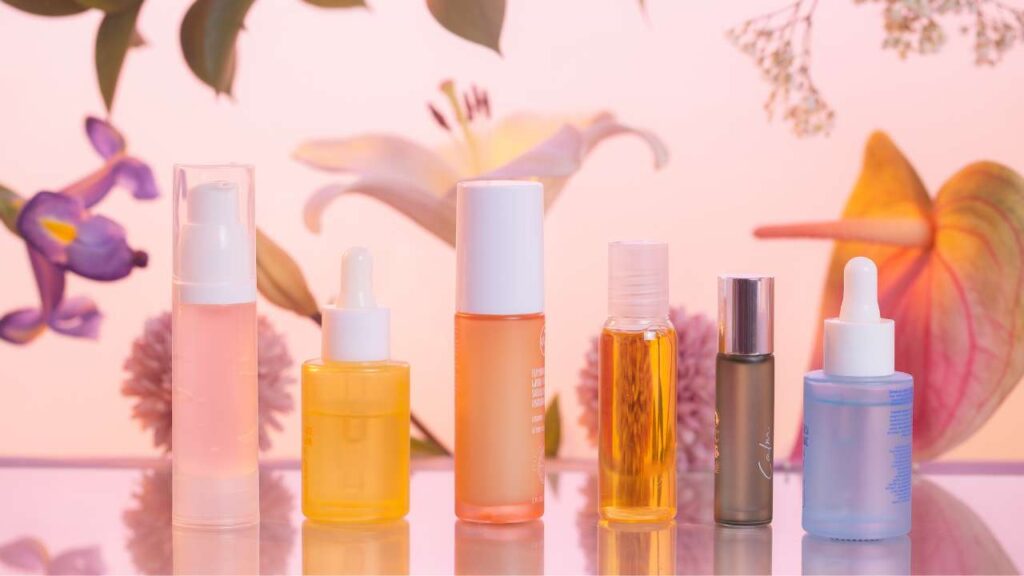Tocopherol Allergy and Skin Care: Navigating the Cosmetic World
Skincare is a crucial part of our daily routine, but what happens when an ingredient in your beloved products triggers an allergic reaction? Tocopherol, commonly known as vitamin E, is a prevalent ingredient in many cosmetics, lauded for its skin benefits.
However, this seemingly beneficial ingredient can lead to uncomfortable and even harmful skin reactions for a segment of North Americans. These individuals live with a-tocopherol allergy, navigating a cosmetic world with this ubiquitous component.
This post will be your compass, guiding you through the labyrinth of skincare products, helping you to spot tocopherol, understand its effects, and uncover suitable alternatives to ensure your skincare routine is not just effective but also safe for your skin.
Understanding Tocopherol Allergy
Tocopherol, known as vitamin E, is widely appreciated for its antioxidant properties. But as beneficial as it may be for some, it can prove problematic for others. A tocopherol allergy, while not as common as some other types of allergies, can be disruptive for those who experience it.
When we talk about tocopherol allergy, we refer to an adverse immune reaction when a person comes into contact with tocopherol. This reaction can happen when tocopherol is consumed orally or applied topically, as it often is in skincare products.
Symptoms of tocopherol allergy can vary, but some of the most common include skin redness, itching, hives, or even more severe manifestations such as difficulty breathing or facial and lips swelling in extreme cases. It’s important to note that the severity of symptoms can differ from person to person and may depend on the level of sensitivity and the amount of tocopherol exposure.
The exact cause of tocopherol allergies is still a subject of research. It’s believed that genetic predisposition and environmental factors may contribute to its development. However, one thing is clear: if you have tocopherol allergy, your immune system identifies tocopherol as a threat and reacts accordingly.
Understanding this allergy is the first step in managing it effectively. If you suspect that you have tocopherol allergy, it’s essential to consult a healthcare provider or an allergist for a proper diagnosis. Through a series of tests, they can confirm whether tocopherol is the cause of your symptoms and advise you on the best course of action to manage your allergy.
Tocopherol in the Cosmetic World
Tocopherols, specifically alpha-tocopherol, are often hailed as the skin’s best friend in the cosmetic world. This reputation is primarily due to their potent antioxidant properties, which play a crucial role in protecting the skin from damage by harmful free radicals.
These free radicals can be produced through exposure to various environmental stressors such as sunlight, pollution, and smoke.
Besides their protective role, tocopherols also provide moisturizing benefits. They help to strengthen the skin barrier, keeping it hydrated and locking in essential moisture. This is why you’ll often find tocopherol in products that combat dry or mature skin.
Another reason tocopherols are loved in the cosmetic industry is their stability. They can enhance the shelf-life of products, making them a common addition to a wide range of cosmetic items, from creams and serums to lipsticks and sunscreens.
However, the ubiquity of tocopherols in skincare and cosmetic products poses a challenge for individuals with a tocopherol allergy. It can often feel like navigating a minefield, with potential allergens lurking in every product. Recognizing this challenge is the first step in dealing with it effectively.
As a consumer, it’s crucial to be aware that tocopherols might be listed under various names on product labels. Apart from ‘tocopherol,’ look for terms like ‘Vitamin E,’ ‘alpha-tocopherol,’ ‘tocopheryl acetate,’ or ‘tocopheryl linoleate.’ All these are forms of vitamin E and could cause an allergic reaction in sensitive individuals.
Impact of Tocopherol Allergy on Skin
Tocopherol allergy might seem harmless, given that a common ingredient in skincare products triggers it, but its impact on skin health can be significant. The allergic reactions vary from person to person, depending on their sensitivity level and the amount of tocopherol they’ve been exposed to.
In most cases, symptoms of tocopherol allergy begin to appear shortly after the skin comes into contact with the allergen. The initial symptoms may include itching, redness, and a burning sensation. If the exposure continues, these symptoms can escalate to more severe skin irritation, such as hives, blisters, or eczema.
While these symptoms are typically localized to the skin area where the product was applied, systemic reactions can occur in rare cases. These might include symptoms such as difficulty breathing, swelling of the face and lips, or dizziness. If you experience severe symptoms, seeking immediate medical attention is crucial.
The long-term impact of continued use of tocopherol-containing products in allergic individuals can be damaging. Persistent skin inflammation can lead to skin barrier dysfunction, increased sensitivity, and premature aging. Moreover, repeated skin irritation can negatively impact your quality of life, leading to discomfort and self-consciousness about your appearance.
The best way to prevent these effects is to identify the allergy early and take appropriate steps to avoid exposure to tocopherols. If you suspect tocopherol allergy, seek advice from a healthcare professional or an allergist. They can help confirm the diagnosis and guide you in managing your allergy effectively.
Identifying Tocopherols in Cosmetics
As we’ve discussed, tocopherols are common in the cosmetic world. Therefore, it’s important to know how to identify them on product labels, especially when dealing with a tocopherol allergy.
Tocopherols can be listed under various names, and they may not be immediately obvious if you’re unsure what to look for. Here are some terms to keep an eye out for:
- Tocopherol
- Vitamin E
- Alpha-tocopherol
- Tocopheryl Acetate
- Tocopheryl Linoleate
These are all different tocopherol forms; any of them could trigger an allergic reaction if you’re sensitive to this ingredient.
It’s also worth noting that tocopherols might be present in both ‘active’ and ‘inactive’ ingredient lists. So, check the entire label, not just the highlighted active ingredients.
In addition, remember that ‘natural’ or ‘organic’ products can still contain tocopherols. Just because a product is marketed as natural doesn’t mean it’s safe for those with a tocopherol allergy.
In the end, if you’re unsure whether a product is safe for you to use, it’s always a good idea to consult with a dermatologist or allergist. They can help you decipher product labels and guide you toward products that are safe for you to use.
Identifying tocopherols in cosmetic products is crucial when managing a tocopherol allergy. It will become second nature with time and practice, making your skincare routine safer and more enjoyable.
Alternatives to Tocopherols in Skincare

Living with a tocopherol allergy does not mean you have to give up on a beneficial skincare routine. There are plenty of tocopherol-free alternatives out there that can provide the same benefits without causing allergic reactions.
Vitamin C, Green Tea Extract, or Niacinamide
For antioxidant properties, look for products containing ingredients like vitamin C, green tea extract, or niacinamide. These components are known for their potent antioxidant effects, which can help to protect the skin from environmental stressors just as effectively as tocopherol.
Hyaluronic Acid, Glycerin, and Ceramides
If it’s the moisturizing effect of tocopherols you miss, ingredients such as hyaluronic acid, glycerin, and ceramides can offer deep hydration and help strengthen your skin barrier. These ingredients are generally well-tolerated and provide significant moisturizing benefits.
Retinol
For anti-aging properties, retinol is a well-researched ingredient that helps to stimulate collagen production and reduce signs of aging. Peptides are another excellent alternative known for their ability to support skin repair and renewal.
When choosing skincare products, look for brands that clearly label them as ‘tocopherol-free’ or ‘suitable for those with a tocopherol allergy.’ Some brands cater specifically to people with allergies and sensitive skin, so their products might be a safe bet.
However, it’s important to remember that everyone’s skin is different. What works for one person might not work for another. It’s always a good idea to patch-test new products before applying them to your face or body.
Lastly, remember that skincare is just one part of maintaining healthy skin. A balanced diet, adequate hydration, regular exercise, and sufficient sleep are all essential for skin health. So, while navigating the world of tocopherol-free skincare, don’t forget to take care of your overall health.
With some research and patience, you can find alternatives to maintain a healthy and beneficial skincare routine without the risk of an allergic reaction.
Living with a Tocopherol Allergy
Living with a tocopherol allergy can present challenges, but with the right knowledge and tools, navigating your way through is possible.
Firstly, it’s crucial to maintain an open line of communication with your healthcare provider or allergist. They can provide valuable advice explicitly tailored to your needs and help monitor your condition to ensure it’s managed effectively.
Being proactive in learning about the products you use is also key. As we’ve discussed, identifying tocopherol in product ingredient lists can help avoid unnecessary exposure. Keep in mind; this doesn’t apply only to skincare products. Tocopherols can also be found in hair care products, makeup, and foods.
Educating those around you about your allergy is also essential. This can help avoid any potential cross-contamination, especially regarding shared products at home.
As we’ve discussed earlier, finding tocopherol-free alternatives can ensure you continue to benefit from a skincare routine that suits your needs without the risk of an allergic reaction. Everyone’s skin is unique, so finding products that work best for you might take some trial and error.
It’s also beneficial to join support groups online or in your local community to share experiences and tips with others dealing with the same allergy.
Above all, remember that a tocopherol allergy doesn’t define you. Yes, it’s an aspect of your life that requires attention and management, but it can be effectively handled with the right approach and support. Remember, advancements in dermatology and allergies are continually happening, so stay informed and hopeful.
Living with a tocopherol allergy might seem daunting initially, but with time and the right strategies, it becomes just another part of life you’re well-equipped to manage.
Conclusion
Navigating the cosmetic world with a tocopherol allergy can seem overwhelming, but with understanding and vigilance, it’s entirely manageable. By learning to identify tocopherols in products, seeking alternatives, and maintaining open communication with healthcare professionals, you can continue to enjoy a beneficial skincare routine without compromising your skin’s health.
Remember, this journey is uniquely yours, and with every challenge comes an opportunity to learn more about your skin and what it needs to stay healthy. You’re not alone in this journey; a world of tocopherol-free skincare is waiting for you to discover.












Leave a Reply